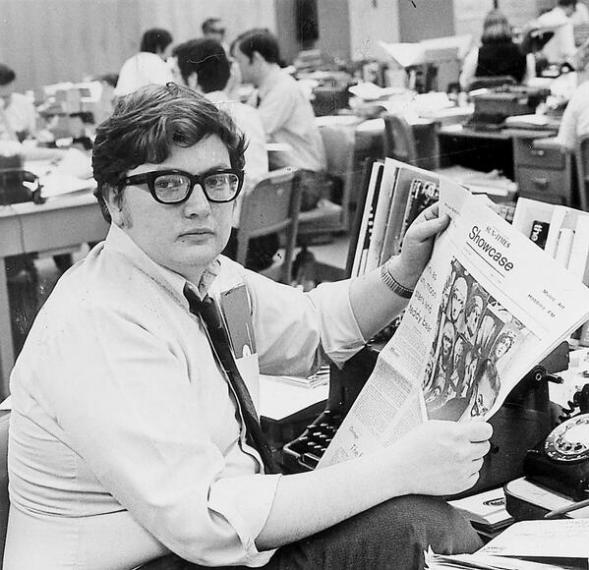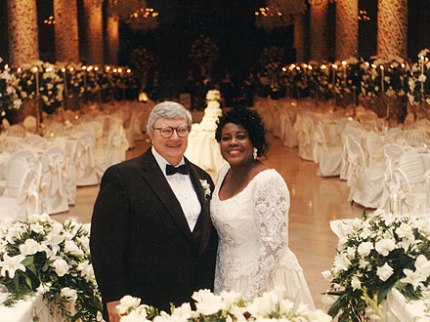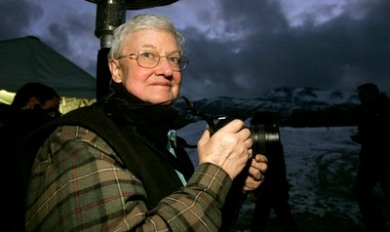
Steven Spielberg is firmly cementing himself as the authority of historically based silver screen entertainment. He seems to gravitate toward complex, gargantuan issues and asks, “How do I film this?”. Making entertainment out of a few pages in our history books seems a daunting task for any film maker. You feel obligated to the facts, but you also have to tell an entertaining story and make those who’ve been deceased for decades compelling. There is a balance of embellishment and creative liberties which must be struck.
Still, judging by how relatively well Spielberg makes these types of films, it seems near impossible to stick a perfect landing, as with Lincoln, while well-made as usual, wonderfully casted and acted with a weighty script, it can still feel cumbersome and, at times, no more than a well told history lesson.
We’re dropped into the thick of it from the first frame. A disturbingly violent opening battle takes place, black soldiers from the North clearly shown fighting whites from the South – a desperate, heartbreaking scene harkening back to Saving Private Ryan’s legendary Normandy beach opening. It’s a bit over the top with “Look how awful the civil war was!” and “blacks vs. whites!” as we see men brutally stabbed with multiple bayonets and concludes with a man being drowned in 6 inches of muddy water by the sole of a soldier’s boot. It sets an uncomfortable but misleading tone at the start of what, in comparison, is a lighter film as battle scenes and slaves altogether are absent for the remainder.
Going into a film called Lincoln, many viewers will expect to see the two famous historical scenes which come to mind when you learned of the President in grade school – The Gettysburg Address and the assassination. Spielberg “gets around” those in interesting ways – the Address is referenced directly following that opening bloody battle in a Hallmark moment between the president and two African-American soldiers. As we’ve seen in the latter half of Spielberg’s career, he is becoming fond of schmaltz and grandstanding, this scene along with others are peppered throughout the film when we’re supposed to “feel something”, some working better than others.

What every viewer should know is this is not a Lincoln biopic. This is a 13th amendment biopic. But 13th Amendment isn’t as smooth a film title. Yes Honest Abe is the character whom we follow the most, but the amendment debates and process definitely take precedence in the 2nd half of the film, the half which I thought played better, becoming more engaging and emotional. Needless to say, Daniel Day-Lewis embodies Lincoln here as best as any actor could. He feels lived in, like an old house. You see the struggle behind his sharp eyes, a man who has had to put family and his own life 2nd to an ultimate goal he has for his country; a goal which seemed to be shared by the extreme minority.
What impacted me the most is that a relative handful of men thought they knew better than a country which did not want to see slaves freed, and men like Lincoln and radical republican Thaddeus Stevens (scenes chewed up by Tommy Lee Jones) were brave enough to fight for this change because they knew it was right in their hearts, popularity be damned. That in itself, especially to see that in politics of all places, is what truly inspires the soul and gives us a sense of patriotism when leaving this film.
It’s an interesting film for me, a kaleidoscope really. You see and feel a lot. I do believe playwright Tony Kushner (the screenwriter) and The Berg tried to tackle too much here, especially by including so many story mechanics and players, preventing an even flow. Is this about Lincoln the man, the 13th amendment, the end of the Civil War or the melodrama in Lincoln’s life? The answer is all of the above. They’ve fit this into 2 ½ hours and it still feels long. With the many interior scenes it tends to feel stagey in parts, but there are moments, especially in the fiery House of Representatives, in which you can’t help but get caught up in the soaring emotion; you fight the good fight along with them.

As with Kushner’s sprawling but wonderful Angels in America teleplay, the dialogue here is thick as Lincoln’s hair and esoteric by today’s standards, yet maintains a rich authenticity. Many times it spews forth at a mile a minute and as a viewer you’re catching up not only with the vocabulary but the history as well. Especially in the 1st half I felt like I should have, at the very least, looked up Lincoln’s Wikipedia page. There are certain quick scenes which occur with no explanation, the burning of what I assume was Petersburg flashes on-screen – maybe the film’s only huge special effects shot – yet we’re told nothing about the how or why.
There are probably 50 characters of note in the film; if you know all of their names and roles by the end of it you deserve a medal. Lincoln is portrayed as a storyteller, like the grandfather who seems only to speak to a room in jokes or stories of old, which is quite endearing for the character and his stories actually present a point, but I’d think they could have cut at least one or two out of the film. I’m not sure if it was self-referential, but at one point a character pleads with Lincoln, “Oh no, not another story!”, and storms out of the room. I guess they didn’t get the joke in the editing room.

The specks of comedy throughout honestly do work and help lighten the mood from the constant political strategizing, even when the comedy actually results from that strategizing. This is greatly helped along by the charmingly disheveled James Spader and his motley crew of John Hawkes and Tim Blake Nelson, 3 guns for hire secretly engaged by Lincoln’s office to sway House member votes for the amendment any way they can without actual monetary bribes.
I must also mention actor Michael Stuhlbarg. I could have sworn it was Joaquin Phoenix playing George Yeaman, a vote-on-the-cusp Democrat, but for maybe 15 minutes of total screen time he holds his own being quietly intense. If you’ve seen him star in the Coen Bros. A Serious Man then you know his range of unquestionable talent. He joins a dream cast of presumably every character actor in Hollywood sporting every type of beard imaginable. Facial hair fetishists are in luck.

With all the plot and character setup in the 1st half the pacing of the film inevitably suffers, often breaking to a halt for exposition and political jargon. The film soars in the personal moments especially with Lincoln, even though the marital drama with Mary Lincoln (Sally Field) can feel melodramatic and unnecessary at times. While the subplot with Lincoln’s oldest son Robert, played dutifully by the new go-to-guy Joseph Gordon-Levitt, is interesting it probably could have seen the cutting room floor as it never results to much and doesn’t propel the true plot of the film.
I’m realizing this all sounds fairly negative. I do believe the film ends stronger than it starts; it takes awhile to get this engine going with all of these complex moving parts. I believe the adherence to historical accuracy often hindered the making of an entertaining movie unless you’re a history or political buff. I know Spielberg and Kushner are capable of creating the entertainment, Munich is a wonderful example of something that both informs and keeps you riveted and, while still overlong as well, you didn’t feel like you needed to brush up before you went in.

I’ll call it now, Tommy Lee and Daniel will be up for Best Lead and Supporting Actors. Unfortunately John Williams’ score feels indistinctive using his now typical French horn to convey contemplation, but throwing in some old-timey folk fiddle for good measure which is the only time your ears really perk up. I also must say that Spielberg has done more for the African-American story of struggle than any other director I can think of but can’t recall when he’s been honored by the community. Between Lincoln, Amistad and The Color Purple, and apparently he even has an adopted black son, it seems strange this subject isn’t brought up more.
I will say as an American, it’d be a good idea to see Lincoln – impeccable strategy by Dreamworks to release this just after our election and 2 months before the 150th anniversary of the Emancipation Proclamation. In the end you do get that warm and fuzzy feeling (even with what we know of Abe’s demise) and you long for someone with Lincoln’s moral fiber and tenacity to lead us, but you also realize nothing has changed in politics as far as divisiveness, fear of progress, mud-slinging, etc.. Like the movie, it’s both a heavy and hopeful feeling.

Lincoln opens November 16, 2012, dir. by Steven Spielberg, screenplay by Tony Kushner.










